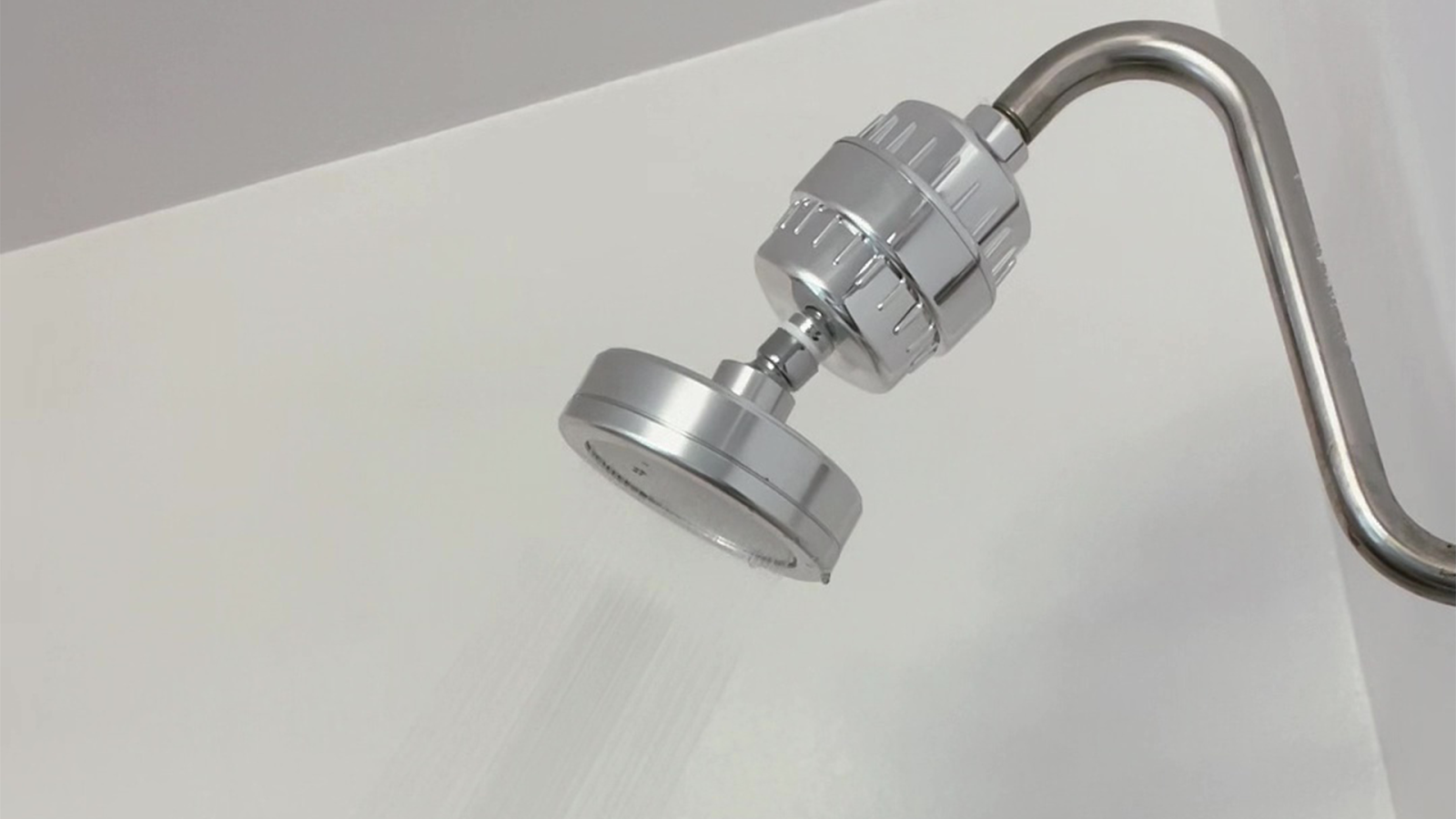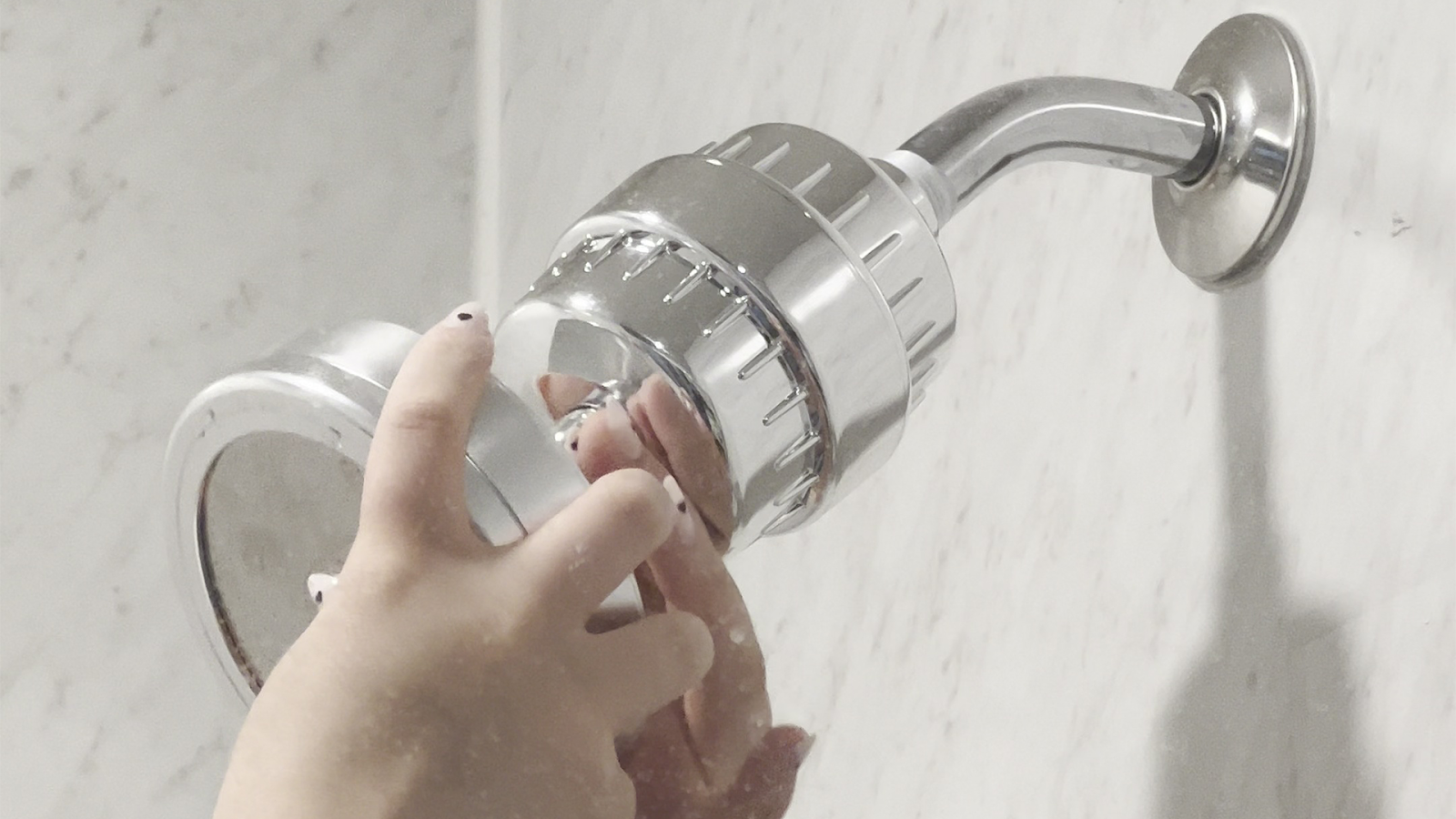
600k+ Followers

600k+ Likes

160k+ Followers
FEATURED IN





If you've been battling frizzy hair, itchy skin, or breakouts that just won’t go away—your shower water might be the real culprit. Hard water damage is more common than you think, and it could be the hidden factor sabotaging your skincare and haircare routines.
In this blog, we’ll uncover the science behind how hard water ruins your hair and skin, and what you can actually do about it.
What is Hard Water?
Put simply, hard water is water that contains a high concentration of minerals—mainly calcium and magnesium. It’s not harmful to drink, but when it comes to your skin and hair, it can be a total nightmare!
Why Should You Care About Hard Water?
Because you come into contact with it every single day.
From your morning shower to washing your face at night, the effects of hard water on hair and skin accumulate gradually—leaving behind dryness, buildup, and irritation.
The Science Behind Hard Water
What Minerals Are Found in Hard Water?
Hard water is rich in dissolved minerals such as:
Calcium
Magnesium
Iron (in some regions)
Manganese
These minerals form deposits on your scalp and skin that are hard to wash away with regular soap or shampoo.
How Does Hard Water Form?
When rainwater seeps through soil and rock, it picks up minerals along the way. Areas with a lot of limestone or chalk are especially prone to hard water. You can test for hard water with a simple home kit or by spotting physical symptoms.
How Hard Water Damages Your Hair
Dryness and Brittle Hair
Hard water strips your scalp and hair of natural oils. The minerals bind with your shampoo, making it harder to rinse clean, which leaves residue behind. This leads to dry, brittle strands that are prone to snapping.
Frizz and Dullness
If your hair never seems to shine or feels rough to the touch, hard water and skin problems might be at play. Mineral deposits weigh hair down and block light reflection, making it appear dull and lifeless.
Scalp Irritation and Dandruff
Mineral buildup clogs your hair follicles and irritates the scalp. This can trigger dandruff, itchiness, and even flakiness that resists treatment.
Mineral Buildup and Hair Loss
One of the most alarming effects of hard water is the link to hair thinning. The residue left behind can cause follicle blockages, potentially leading to shedding. Wondering, "Does hard water cause hair loss?" The short answer: It can contribute to it over time.

How Hard Water Damages Your Skin
Dryness and Dehydration
Why does hard water make my skin dry? Because it leaves a mineral film that acts like a barrier, stopping lotions from penetrating the skin properly.
Hard water reduces your skin’s ability to retain moisture. Over time, this leads to a tight, parched feeling after every wash.
Clogged Pores and Acne
Minerals can settle into your pores, combining with natural oils and dead skin cells. This clogs pores and leads to breakouts—especially for acne-prone individuals.
Eczema and Dermatitis
If you have sensitive skin or conditions like eczema, hard water skin irritation can make symptoms worse. Studies show hard water can increase the severity of atopic dermatitis.
Premature Aging
Long-term use of hard water can compromise your skin’s barrier, leading to oxidative stress and inflammation. This contributes to fine lines and uneven texture—making your skin look older than it really is.
Signs You’re Dealing with Hard Water
Hair and Skin Symptoms
Hair feels heavy, dull, or dry
More hair in your brush or drain
Itchy, flaky scalp
Skin feels tight or itchy post-shower
Acne or breakouts that don’t respond to usual treatments
Household Signs
White, chalky deposits on faucets
Soap that doesn’t lather well
Towels and clothes that feel stiff even after washing

How to Protect Your Hair and Skin from Hard Water
Water Softeners and Filters
The most effective solution? Installing a filtered shower head. It helps remove minerals, chlorine, and impurities, delivering softer water instantly.
Explore Shower Envy’s vitamin-infused shower head, which not only filters but also rejuvenates skin and hair with added nutrients.
Or dive deeper into the benefits of ionic shower heads for a spa-like experience at home.
Chelating Shampoos
These specialized shampoos are formulated to remove mineral buildup. Use them once or twice a week to deeply cleanse your scalp and strands.
Moisturizing Skincare Routine
Focus on products that strengthen your moisture barrier—look for ingredients like ceramides, hyaluronic acid, and niacinamide. Always apply moisturizers while skin is still damp.
DIY Remedies
For a quick fix:
Rinse hair with diluted apple cider vinegar to help dissolve mineral buildup
Use a baking soda paste on your scalp to detoxify and exfoliate
Add a few drops of essential oil to baths to counteract dryness
Conclusion
Hard water might seem harmless—it’s just water, right? But over time, those invisible minerals quietly take a toll, leaving your hair dry, your skin irritated, and your shower routine far less refreshing than it should be.
The good news? You’re not powerless. Now that you understand the real impact of hard water damage, you can take simple, science-backed steps to protect your body. Whether it’s upgrading to a filtered shower head, adding a chelating shampoo, or just being more mindful of what’s in your water, small choices can lead to big improvements in how you look and feel.
Your shower should be a moment of care, not damage control. So give your skin and hair the clean, healthy water they deserve—because when you feel better in your own skin, everything else flows a little easier.
FAQs
1. Can hard water cause permanent hair damage?
Not always—but it can cause long-term issues if left unaddressed. Continuous exposure to mineral-heavy water can weaken hair strands over time, leading to increased breakage, brittleness, and even thinning. While the damage isn’t always permanent, the longer you wait to treat it, the harder it is to reverse.
2. What’s the best skincare routine for hard water areas?
Keep it simple and nourishing. Start with a gentle, non-stripping cleanser, follow with a hydrating toner to balance your skin’s pH, and lock in moisture using a rich, barrier-repairing moisturizer. Adding a weekly exfoliant or barrier cream can also help if you’re prone to dryness or irritation.
3.Do shower filters really work against hard water?
Yes, but it depends on the filter. Basic ones may help a little, but filters like theShower Envy Filtered Showerhead are designed to target both minerals and chlorine, giving you visibly softer hair and smoother skin with every rinse.
4. Is hard water bad for colored hair?
Absolutely. The minerals in hard water can dull your color, cause fading faster, and make your hair feel stiff or straw-like. If you’ve invested in salon color, protecting it with filtered water and a sulfate-free shampoo is a must.
5. Can hard water worsen skin conditions like eczema?
Yes—it can. Hard water can disrupt your skin barrier, making it more vulnerable to flare-ups, itching, and inflammation. For people with eczema or sensitive skin, filtering out irritants like chlorine and heavy metals can make a noticeable difference in comfort and skin clarity.
Want to dive deeper into better shower routines and healthier hair and skin? Check out our latest post on shower head health risks and solutions.



